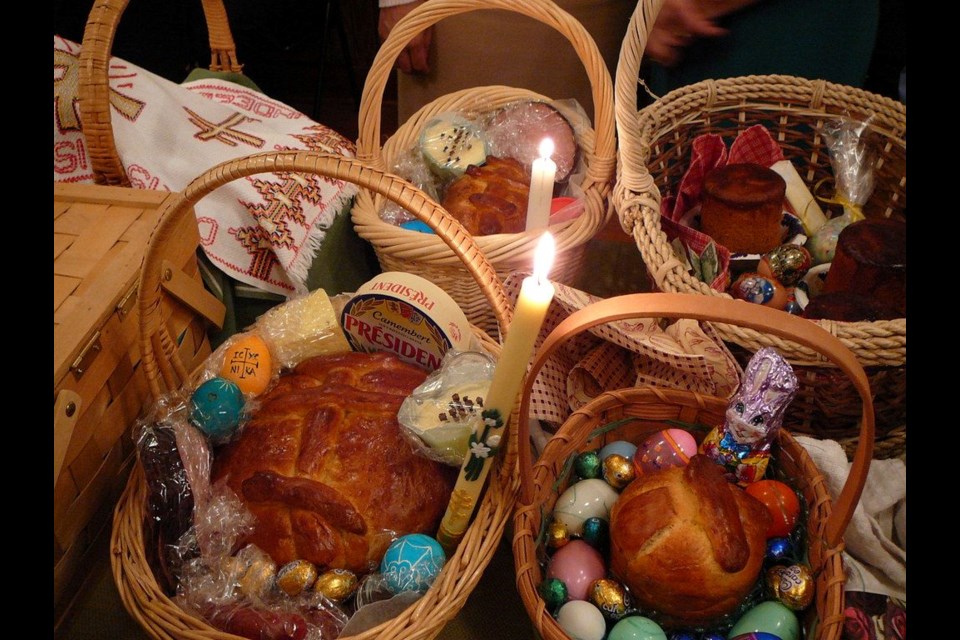MOOSEJAWTODAY.COM — While Western Christians celebrated Easter and the resurrection of Jesus Christ at the end of March, Orthodox Christians follow a different calendar and only recently held their Easter celebrations.
In Moose Jaw, parishioners of Holy Trinity Orthodox Church on Ninth Avenue Southwest held their Easter commemorations — or Pascha — during the first weekend of May. This included the blessing of food-filled baskets on May 4, a midnight mass later that day, and a service on Resurrection Sunday on May 5 that featured members parading around the building.
About 25 people attended the Saturday service, with Rev. Volodymyr Feskiv saying prayers in Ukrainian over the baskets of food and blessing them with water, parishioner Amy Jane Lunov said. Typically, people are expected to fast for 40 days during Easter, and then after the midnight service, they can eat the food from the baskets.
“It was nice to see so many Ukrainian people. The church is always open to them, even though it’s not in Ukrainian,” she continued. “People sometimes think church is only for Easter and Christmas, (so) it was nice to see many people in church.”
Rev. John Bingham, the parish priest, later led the midnight mass and Easter Sunday service in English.
The date for Orthodox Easter comes from following the Julian calendar, which differs from the Gregorian calendar used by most Western countries and Christian denominations. Consequently, Orthodox Easter often occurs a week later, usually close to the March equinox.
The reason for the two different calendars comes from a miscalculation of astronomy. The primary goal of creating the Gregorian calendar was to alter the time of Easter.
According to history.com, “In 1582, when Pope Gregory XIII introduced his Gregorian calendar, Europe adhered to the Julian calendar, first implemented by Julius Caesar in 46 B.C. Since the Roman emperor’s system miscalculated the length of the solar year by 11 minutes, the calendar had fallen out of sync with the seasons.
“This concerned Gregory because it meant that Easter, traditionally observed on March 21, fell further away from the spring equinox with each passing year.”
Meanwhile, the term “Pascha” is derived from the Greek word “Pascha,” which itself comes from the Hebrew word “Pesach.” “Pesach” is the Jewish festival of Passover, which commemorates the Israelites’ liberation from slavery in Egypt. The Last Supper of Jesus, which is associated with the Christian Eucharist, is believed to have been a Passover meal.
In Christian tradition, the resurrection of Jesus is often linked symbolically to the Passover, signifying a new liberation — this time from sin and death. The term “Pascha” has been used in Eastern Orthodox Christianity to emphasize this connection and to highlight the theological significance of Christ’s resurrection during the Easter celebration.



